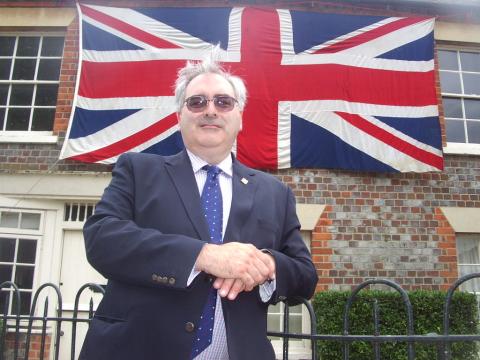What is so ‘European’ about the European Union?
by The Editor

As Britain prepares for the long-promised EU referendum, one writer questions the European credentials of the pro-Brussels side.
As Britain prepares for the long-promised EU referendum, one writer questions the European credentials of the pro-Brussels side.
The years 1991-93 saw the country – and the Conservative Party (once again) – in turmoil over the question of Europe, with the Maastricht Treaty of that time promising an “irrevocable European Union”, and Tory Prime Minister, John Major, supporting it. At the height of the battles over Maastricht, Major famously remarked: “I want Britain to be at the heart of Europe…” – a sentiment which our present Premier echoes, despite calling for a reformed Union.
Then, as now, the Conservative press took the Eurosceptic side, The Sunday Telegraph leading the weekly assault against the irrevocable political system which the bureaucrats of Brussels had in store for us. One of the most vocal of the Fleet Street polemicists was the author and leading columnist of the time, Paul Johnson, who penned an extraordinarily emotional piece – entitled, ‘Farewell to the England I loved’ – which certainly rallied all romantic Englishmen and Britons against our federalist enemies. However, perhaps more interestingly, he made the observation that in the grey, conformist, nationless EU, the “culture of Europe was dying as surely as that of England” – a prophetic comment indeed, especially in the light of what we now know and see around us: Greece in chaos, Germany (once an invader) overwhelmed by armies of people pouring across the continent from the Middle East, and a liberal EU elite unable to do anything about it – save for uttering the usual liberal cries of the age.
The Europe of 2016 seems to have lost all sense of European integrity and culture, imprisoned as it is within its own sterile landscape, and run from impersonal plate-glass buildings and banks. A dreary blue flag with yellow stars flutters above this continent of Charlemagne and Wagner – and Europe’s citizens exchange their Euro banknotes, each piece of paper bearing a bland design: pictures of “bridges that go nowhere and windows that open into nothingness”, to quote a former Eurosceptic French politician, Jean-Pierre Chevènement.
When our politicians gather at their Euro-summits (the Prime Minister of Great Britain usually reduced to begging for crumbs from the table), how many of them truly look like leaders of a great continent? Do they stand to sing Europe’s anthem, set as it is to a noble tune from the final movement of Beethoven’s Ninth Symphony? Is there a reading from Goethe before proceedings get underway? Do they meet in a chateau, overlooking the Rhine or the Rhône? Sadly, European gatherings resemble the shareholders’ meetings of banks, or at best, a dull sales conference – an explanation, perhaps, as to why so few people feel enthused about the EU. Our pro-Brussels politicians keep telling us that they are “passionate Europeans”, yet I wonder how many can speak more than a sentence of a European language – or can name more than two or three French or German, or Danish or Spanish composers or artists?
The current EU referendum is, of course, long overdue, but even this event seems to have left the British electorate cold and (at present) indifferent. The media, of course, is portraying the argument as one between old-fashioned patriots, neurotic and anxious about “change”, fearful of the “the other”; as opposed to the forward-looking Europeans who are truly embracing a better future. Yet our media seem to forget that in 1992, it was the Danish electorate which resoundingly rejected the Maastricht Treaty – with France, a year later, registering a 49 per cent vote against the creation of this more regimented, tightly-controlled EU system of government.
The truth is that Europe, which should belong to all of us – in a community of nations – has fallen into the hands of an establishment, characterised by the “you-will-do-as-you-are-told” mentality, which tends to be common to all superstates. Rather than voting to stay in or leave the EU, we should be working out a way to create – not a bloc – but an alliance; a civilised club of sovereign countries which seek to maintain their bedrock identities, economic stability and general way of life at a time of globalisation and uncertainty. Sadly, this Europe is beyond us, but might come into being at some point in the distant future – especially if the world continues on its current path (environmental degradation, terrorism, over-population and possible fuel and food shortages, to name but a few problems building up on the horizon).
In the meantime, the people of what Churchill described as “the old and famous states of Europe” should think again about the political configuration extending from the Atlantic coast to the borders of Russia. Does it truly represent us: does it truly represent you? As we in Britain prepare to vote on whether to maintain our place in the “irrevocable” European Union, we must ask: how European is the current EU?
Stuart Millson is a freelance writer, based in Kent.